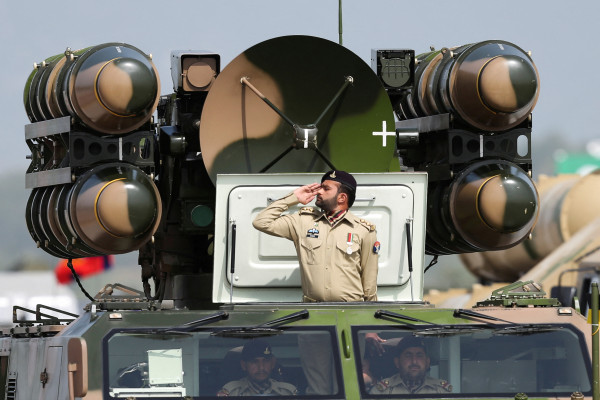India dismissed speculation about a nuclear confrontation with Pakistan following recent cross-border military engagements, asserting that all Indian actions remained strictly within conventional military boundaries and that nuclear rhetoric would not be allowed to dictate India’s security response.
At the weekly Ministry of External Affairs (MEA) briefing, Spokesperson Randhir Jaiswal addressed mounting speculation in global media and statements by former U.S. President Donald Trump, who claimed India and Pakistan were “on the brink of nuclear war” before agreeing to a ceasefire.
No Nuclear Brinkmanship
Responding to Trump’s assertions, Jaiswal reiterated that India’s operations under Operation Sindoor were deliberate, proportionate, and did not target nuclear infrastructure.
“Our actions were calibrated and entirely within the scope of conventional military operations. Speculative narratives about nuclear escalation are baseless and irresponsible,” Jaiswal said.
He emphasized that India’s defence posture is grounded in restraint but not at the cost of tolerating cross-border terrorism.
“There is no room for nuclear blackmail. We will not be coerced or silenced by irresponsible threats cloaked in nuclear posturing.”
Pak Nuclear Narrative Unravels
Jaiswal also addressed rumours regarding an alleged Indian strike on Pakistan’s Kirana Hills, believed to host underground nuclear facilities. He dismissed these claims, stating that such questions were better directed at Islamabad, which had issued conflicting statements.
“Pakistan’s own Foreign Minister has publicly denied any nuclear angle. Reports about a National Command Authority meeting were later denied by Pakistani authorities themselves,” he noted.
He also issued a warning to foreign governments and observers:
“Entertaining such speculation not only misrepresents the facts but risks encouraging instability in other regions as well. India acts responsibly — others should too.”
Op. Sindoor New Normal
In a national address on May 13, Prime Minister Narendra Modi praised the armed forces and underlined a doctrinal shift in India’s approach to regional security.
“Operation Sindoor has set a new benchmark in India’s military conduct. Our response is decided not by threats but by what is necessary to ensure India’s safety. What our soldiers have achieved is unprecedented and extraordinary,” Modi declared.
He reaffirmed that India alone will determine how and when to respond to provocations — without being deterred by nuclear sabre-rattling.
IAF Debunks Kirana Hills Strike Rumours
Separately, Air Marshal A.K. Bharti, Director General of Air Operations, categorically denied that the Indian Air Force had targeted Kirana Hills.
“We have not hit Kirana Hills — whatever may be there. I did not mention it in my briefing on Operation Sindoor,” he said, adding with irony, “Thank you for telling us what’s housed there — we didn’t know.”
He clarified that IAF strikes were focused on key Pakistani military targets, including:
- Nur Khan-Chaklala Air Base near Islamabad
- Sargodha Air Base, home to Pakistan’s F-16s and JF-17s
While these facilities lie near sensitive nuclear-linked infrastructure, Indian officials underscored the calculated nature of the strikes.
“This was not about blind escalation — it was about strategic signalling,” a senior official said. “The goal was to dismantle terror infrastructure and degrade military capacity, not provoke a nuclear incident.”
Radiation Bulletin
Amid the war of narratives, a leaked document from Pakistan’s Ministry of Climate Change—labelled a “Radiological Safety Bulletin”—reported a radiation incident on May 11, the day after the ceasefire.
The bulletin blamed a mechanical failure during the handling of an Indium-192 capsule, a radioactive isotope used in non-destructive testing. However, the timing of the incident and its proximity to nuclear-linked areas have fuelled suspicions about broader instability within Pakistan’s nuclear safety regime.
Indian officials have declined to comment directly on the document but reiterated that no Indian munitions targeted nuclear facilities, and any such incident was internal to Pakistan.
India’s Red Lines
India’s response to the latest round of nuclear speculation sends a clear message: it will respond firmly to terrorism, remain within conventional military boundaries, and not allow nuclear blackmail to shape regional security dynamics.
As PM Modi emphasized, a new strategic normal is now in place—one that deters aggression punishes terrorism, and reinforces India’s position as a responsible yet resolute regional power.





